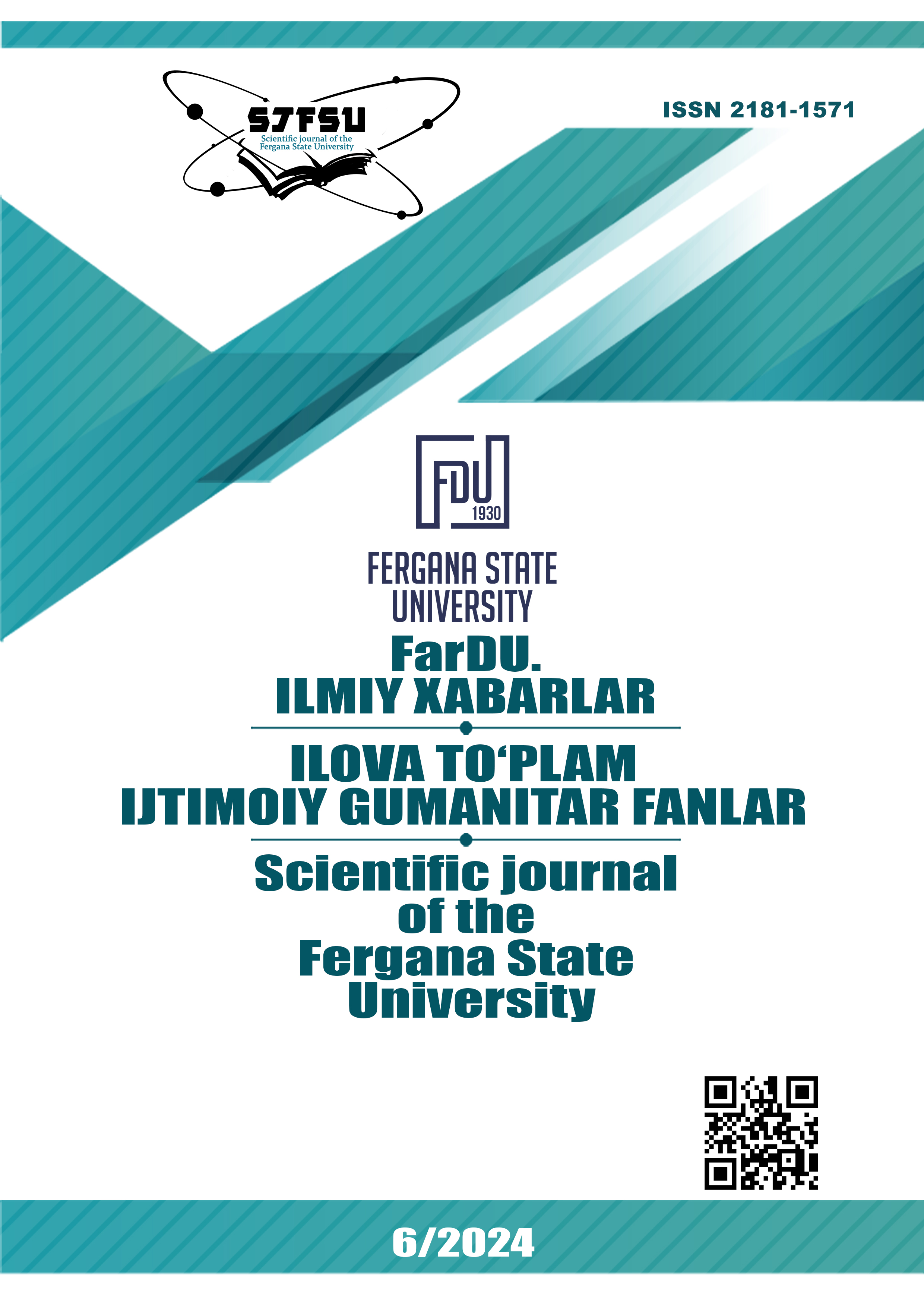LINGUOCULTURAL CHARACTERISTICS OF OCCASIONAL WORDS IN ENGLISH AND UZBEK
Keywords:
Occasional words, linguocultural studies, neologisms, affixation, compound words, emotional-expressiveness, contextual meaning.Abstract
This article explores the linguocultural features of occasional words in Uzbek and English. Occasional words, as individual-stylistic neologisms, are created in literary works to reflect the author’s emotions, enhance stylistic nuances, and suit the context. The study analyzes occasional words formed through affixation and compound structures. It emphasizes that in both languages, occasional words exhibit high emotional and expressive meaning dependent on their context.
References
Абросимова Л.С. Словообразование в языковой категоризации мира. Монография. – Ростов-на-Дону Издательство южного федерального университета, 2015 г. – 330 c.
Антюфеева Ю.Н. Английские новообразования в развитии: потенциальное слово, окказионализм, неологизм. Автореф. дисс… канд. Филол. наук.– Белгород, 2004. – 19 c.
Тошалиева С.И. ўзбек тилида окказионал сўз ясалиши: Филол. фан. номз. ... дисс. –Тошкент, 1998. – 136 б.
Хохлачева В.Н. Индивидуально-оценочное словообразование в русском литературном язқке XIX века (имена существительные). – В.кн.Материалы исследовании по истории русского литературного языка. – т V. – М., 1962. – 169-171 б;
Ҳожиев А. Тилшунослик терминларининг изоҳли луғати. – Тошкент, 2002. – 158 б.
Чиркова Е.К. О критериях отграничения окказиональных слов от новых слов литературного языка // Современная русская лексикография. – Л.: Наука, 1975. – С. 91-100.
Downloads
Published
Issue
Section
License
Copyright (c) 2025 Scientific journal of the Fergana State University

This work is licensed under a Creative Commons Attribution-NonCommercial-NoDerivatives 4.0 International License.
How to Cite
Most read articles by the same author(s)
- , , GENERAL AND DIFFERENT ASPECTS OF WORD FORMATION IN NON-RELATED LANGUAGES , Scientific journal of the Fergana State University: No. 3 (2024): Scientific journal of the Fergana State University. Application set (Social humanities sciences)
- Sharipova Feruza Ibragimovna, TEACHING UNDERGRADUATE STUDENTS CLINICAL VOCABULARY , Scientific journal of the Fergana State University: No. 2 (2023): Scientific journal of the Fergana State University (Exact and natural sciences)
- , HYPERBOLE AND ITS CATEGORIZATION IN UZBEK LANGUAGE , Scientific journal of the Fergana State University: No. 3 (2024): Scientific journal of the Fergana State University. Application set (Social humanities sciences)
- , TECHNOLOGIES OF COOPERATION IN THE FORMATION OF YOUTH SPIRITUALITY , Scientific journal of the Fergana State University: No. 3 (2022): Scientific journal of the Fergana State University
- , DIDACTIC CONDITIONS OF USING THE ESSAY METHOD IN TEACHING GRAMMAR SUBJECTS IN MOTHER LANGUAGE CLASSES , Scientific journal of the Fergana State University: No. 4 (2023): FarDU ilmiy habarlari jurnali (Ijtimoiy gumanitar)
- , PEDAGOGICAL ABILITIES OF THE TEACHER AND ITS COMPONENTS , Scientific journal of the Fergana State University: No. 6 (2023): FarDU ilmiy xabarlari jurnali (Ijtimoy gumanitar fanlar)
- , , , MODERNIZATION PROCESSES IN BUKHARA TEXTILE INDUSTRY IN THE YEARS OF INDEPENDENCE , Scientific journal of the Fergana State University: No. 6 (2023): FarDU ilmiy xabarlari jurnali (Ijtimoy gumanitar fanlar)
- Feruza Rabbimova, REFLECTIONS ON TEACHINGS OF SUFISM AND FUTUWAT , Scientific journal of the Fergana State University: No. 1 (2023): Scientific journal of the Fergana State University (Social humanities sciences)
- Feruza Abduvaliyeva, Shunqor Xushmatov, ANALYSIS OF INTELLECTUAL DEVELOPMENT OF SCHOOLCHILDRENS (CLASS 1-11) ON SCHOOL NUMBER №1 LOCATED IN ANDIJAN CITY BASED ON THE ANFIMOVA TEST , Scientific journal of the Fergana State University: No. 1 (2023): Scientific journal of the Fergana State University (Exact and natural sciences)
- , CREATION OF WHEAT BRAN HYDROLYZATE PRODUCTION TECHNOLOGY , Scientific journal of the Fergana State University: No. 2 (2023): Scientific journal of the Fergana State University (Exact and natural sciences)

